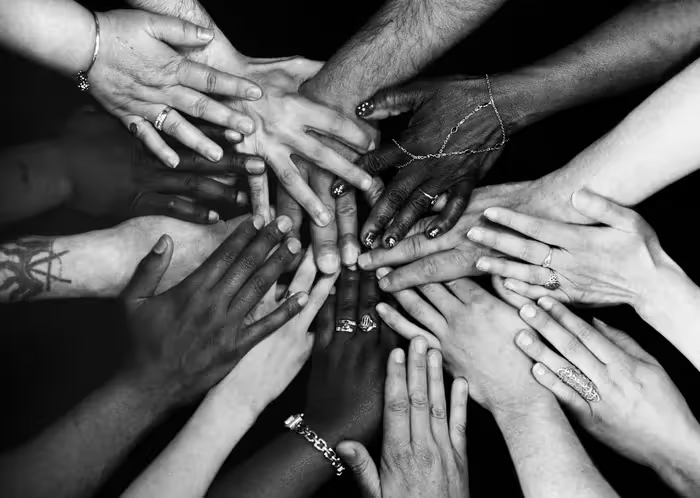“Human rights are not things that are put on the table for people to enjoy. These are things you fight for and then you protect.” Waangari Maathai, Nobel Peace Prize Winner
National Human Rights Month and Universal Human Rights Month are a time every December to remember that we’re all born with important inalienable rights.
In December 1948, representatives from around the world drafted the Universal Declaration of Human Rights. This document was the foundation for establishing fundamental human rights that the United Nations has worked to protect ever since.
The first Article of the document states:
“All human beings are born free and equal in dignity and rights. They are endowed with reason and conscience and should act towards one another in a spirit of brotherhood.”
Human Rights Month serves as a reminder of these principles.
What are Human Rights?
The United Nations and World Health Organization both define human rights as inherent rights we are all entitled to regardless of race, sex, gender identification, nationality, religion, or ethnicity.
These include freedom from slavery and torture, religious freedoms, freedom of expression, the right to work and become educated, the right to clean food and water, and a general right to human dignity and respect.
All of which are vital for our health and wellbeing.
“Human rights are rights we have simply because we exist as human beings - they are not granted by any state. These universal rights are inherent to us all, regardless of nationality, sex, national or ethnic origin, color, religion, language, or any other status. They range from the most fundamental - the right to life - to those that make life worth living, such as the rights to food, education, work, health, and liberty.”
What Role Does Health Play in Human Rights?
The World Health Organization states that everyone has the right to the highest attainable standard of health. Without clean water and air, nutritious food, adequate housing, and the bare necessities of health, people cannot thrive.
And while these rights are the same for everyone, the reality is,
“Disadvantage and marginalization serve to exclude certain populations in societies from enjoying good health.”
Health equity continues to be something we struggle to achieve.
And despite laws and declarations, violations of human rights still occur in some places. That’s why it’s important to take time each year to remember the strides that have been made and draw attention to the long way we still have to go.
What You Can Do to Raise Awareness this Human Rights Month
As we turn toward awareness during National and Universal Human Rights Month, let’s remember that we’re all human beings striving to live the best life we can. Shining a light on human rights and the importance of access to quality healthcare for all can help raise awareness for those still fighting for health equity.
What can you do?
- Spread the message - Share posts, hashtags, and information. Standupforhumanrights.org has some great resources for easy sharing!
- Learn more - Read the Universal Declaration for Human Rights. Reach out to local organizations focused on supporting human rights and health equity.
- Speak up - Lobby with your local community and government to uphold human rights and make positive changes that impact your community.
- Participate - join a human rights group near you or go to an event that raises awareness for human rights.
- Reflect - Think about health inequality and other human rights violations you may have witnessed. Talk about it with others. Hold discussions.








%20(1).jpg)

